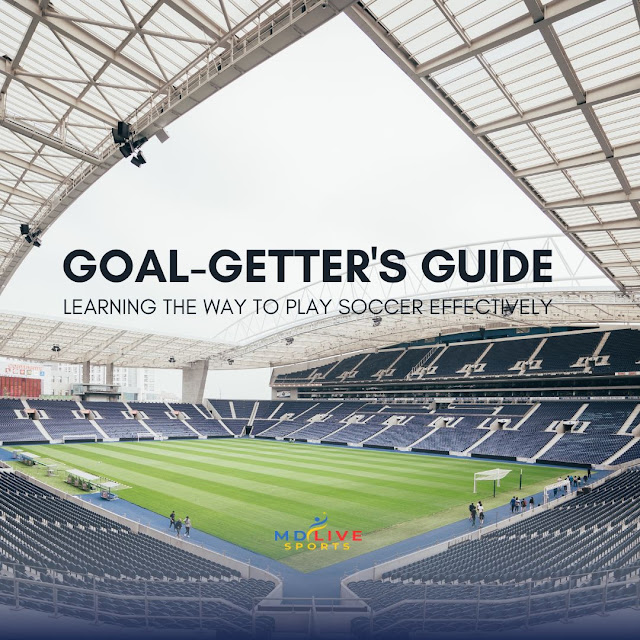Soccer, also known as football in most parts of the world, captivates millions with its beauty and passion. Whether you aspire to play or support your child's soccer journey, understanding effective gameplay is paramount. This comprehensive guide will walk you through the essential steps to becoming a skilled soccer player. From mastering the basics to honing your skills, this article aims to ignite your journey towards scoring goals.
The Fundamentals
Understanding the Game
To be a great soccer player, you must first understand the game. Soccer is played with two teams, each trying to score goals by getting a ball into the opposing team's net. The team with the most goals at the end of the game wins.
Getting the Right Gear
Before you step onto the pitch, ensure you have the right gear. Invest in a comfortable pair of soccer cleats, shin guards, and a jersey. A good soccer ball is essential for practicing your skills.
Mastering the Rules
To develop a strong understanding of soccer, one should learn the rules, which encompass aspects such as offside, fouls, and the overall structure of the game. By grasping these regulations thoroughly, individuals can enhance their decision-making skills when playing on the field.
Developing Essential Skills
Dribbling and Ball Control
Dribbling is the art of moving the ball past opponents. Practice your ball control skills to keep the ball close and move it with precision.
Passing Techniques
Passing is a fundamental part of the game. Work on your short and long passing skills, understanding how to play with both feet.
Shooting and Scoring
Scoring goals is the ultimate aim in soccer. Develop your shooting technique and accuracy. Practice shooting from various angles and distances.
Defensive Skills
Don't just focus on offense. Develop your defensive skills by learning how to tackle, intercept passes, and mark opponents effectively.
Advanced Techniques
Tactics and Strategy
The tactics and strategies utilized in soccer, including formations, positioning, and team coordination, are essential to comprehend. This understanding enables individuals to make more informed decisions throughout a match.
Fitness and Endurance
Soccer is a physically demanding sport. Build your endurance and stamina through regular training to last the full 90 minutes of a game.
Mental Toughness
Soccer players must possess strong mental fortitude. They need to acquire skills in maintaining focus, handling pressure, and nurturing a positive mindset even in the face of challenging circumstances.
Achieving Your Goals
Practice, Practice, Practice
There's no substitute for hard work. Regular practice is the key to improvement. Dedicate time to drills, exercises, and friendly matches.
Join a Team
Consider the option of joining a local soccer team or club where you can acquire valuable experience and engage in competitive environments.
Seek Coaching
Coaches possess invaluable expertise and can guide individuals, assisting in honing their skills effectively. To expedite your progress, it is advisable to collaborate with a reputable coach.
Conclusion
Becoming a skilled soccer player is a journey that requires dedication, hard work, and a deep passion for the game. By mastering the fundamentals, honing essential skills, and adopting advanced techniques, individuals can achieve their goal of playing soccer with remarkable effectiveness. So put on your cleats, practice diligently, and maintain unwavering focus on reaching the ultimate objective – because success as a true goal-getter awaits you!
FAQs
What age is ideal to start learning soccer?
Soccer can be learned at any age, but most children start playing from as young as 3 or 4 years old.
How can I improve my dribbling skills?
You can improve your dribbling skills through practice, dribbling drills, and watching professional players.
What's the best way to stay fit for soccer?
To stay fit for soccer, engage in cardiovascular exercises, strength training, and agility drills.
How can I stay motivated to practice regularly?
One can enhance their motivation by setting goals, monitoring progress, and finding a practice companion. This approach helps maintain focus and drive.
Is it necessary to play in a team to become a good soccer player?
While participating in a team is beneficial, honing individual skills and undergoing dedicated training are equally imperative for enhancing one's abilities and achieving proficiency as a soccer player.










0 Comments